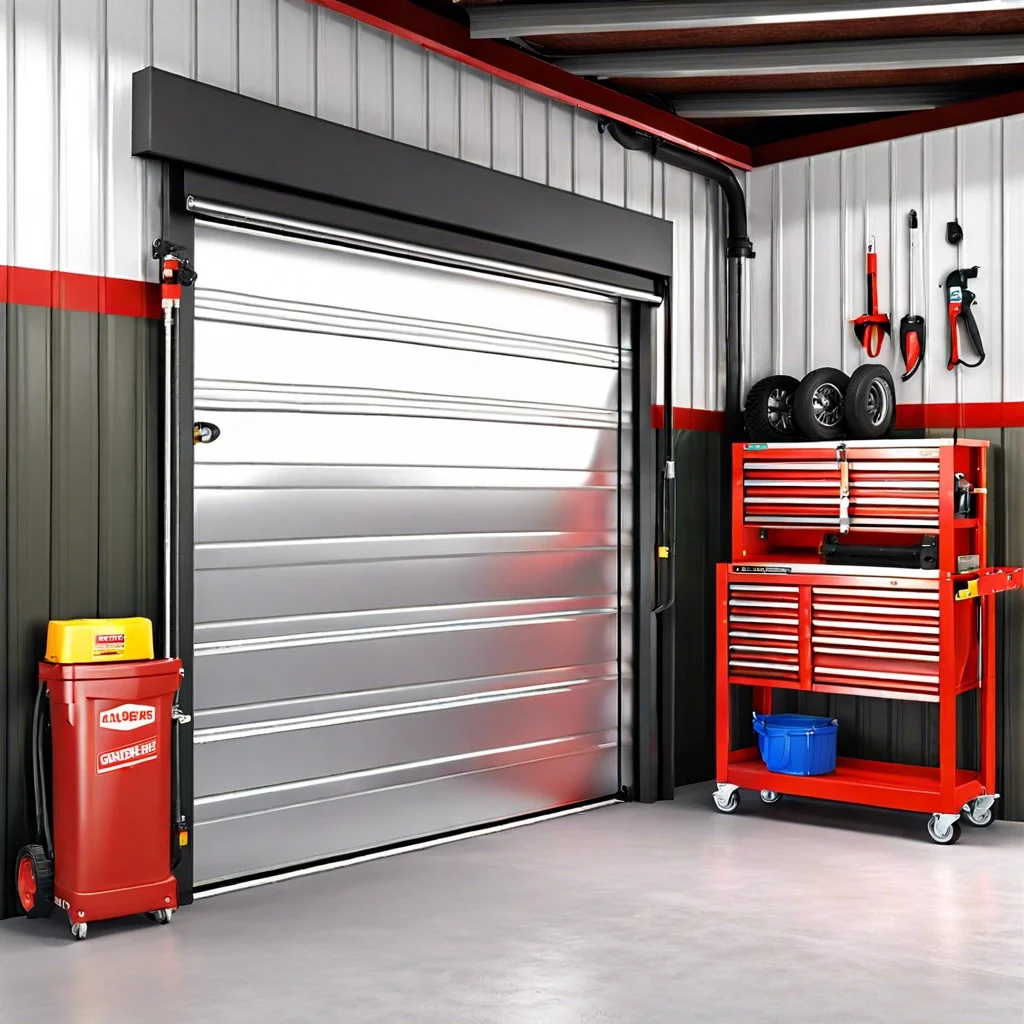Learn how to choose and apply garage door lubricant to keep your garage door running smoothly and quietly.
Key takeaways:
- Clean tracks and hinges for smoother garage door operation.
- Lubricate pivot points on hinges and metal parts of rollers.
- Use silicone sprays for plastic and nylon rollers.
- Petroleum-based lubricants work best for metal components.
- Choose a lubricant that suits the type of garage door and climate.
Pre-Lubrication Maintenance Checklist

First, let’s clear out any cobwebs and debris. Your garage door deserves to roll like a red carpet at a movie premiere, not like it’s trudging through the woods.
Next, inspect the tracks for any obstructions or dirt; they need a smooth, clean surface to operate efficiently. A broom and a vacuum cleaner could become your best friends here.
Tighten any loose bolts or hinges. You don’t want a rattling door—it’s a garage, not a haunted house. Double-check if all parts are working harmoniously together.
Lastly, test the door’s balance. Disconnect the opener and lift the door halfway by hand. If it stays in place, it’s balanced like a high-wire act. If not, it’s time for some adjustments before you start lubricating.
How To Lubricate Garage Door: Step-By-Step Guide
Start by closing the garage door. This ensures safety and gives you access to all the moving parts.
First, clean the tracks with a damp cloth. Removing debris makes a smoother ride for your door.
Next, focus on the hinges. Apply lubricant where the pivot points connect. A little dab’ll do ya; too much may attract more grime.
Move on to the rollers. If they’re nylon, stick to lubricating the metal parts. For metal rollers, go all in on those bearings. They’ll thank you with quieter operation.
Springs and bearing plates come next. A shot or two of lubricant keeps them from getting rusty and noisy. Silent springs are happy springs.
Lastly, don’t forget the lock. A little lube ensures it stays easy to use, even in cold weather.
Voilà! You’re done. It’s that simple. Now your garage door purrs like a kitten. Or at least, a well-lubricated giant metal cat.
Choosing the Right Garage Door Lubricant for Your Door
Selecting the perfect garage door lubricant is like choosing the ideal toppings for a pizza – the right combination ensures everything moves smoothly and deliciously. Here are some pointers to help you make an informed choice:
Firstly, think about the type of garage door you have. Is it a steel, wooden, or aluminum door? Different materials might have unique requirements.
Next, consider the environment. If you live in a region with extreme temperatures, you’ll want a lubricant that performs well in both hot and cold conditions. Cold climate? Silicone-based lubricants are your best friends, as they don’t freeze.
Oil-based lubricants can work wonders for metal components, ensuring they remain rust-free and operate quietly. But beware—never use grease; it can clog the tracks and attract dirt like a dog to a muddy puddle.
Finally, consider ease of application. Aerosol sprays are a popular choice because they’re easy to apply, even in hard-to-reach spots.
Choose wisely, and your garage door will thank you with years of smooth, squeak-free operation.
Types of Garage Door Lubricants: Silicone Vs. Petroleum
Silicone sprays are like the James Bond of garage door lubricants. They’re smooth, efficient, and get the job done without leaving a mess. Plus, they don’t attract dust and grime, keeping your garage door squeak-free and gliding smoothly for longer.
On the flip side, we’ve got petroleum-based lubricants. Think of them as the reliable, no-nonsense workhorse. They offer excellent protection against rust and corrosion. While they might attract more dirt, they’re super durable and can handle even the toughest of jobs.
- Here’s the lowdown:
- Silicone sprays: Great for plastic and nylon rollers, clean application, dust resistant.
- Petroleum-based: Ideal for metal components, long-lasting, rust-preventive, but can be a bit messier.
Choose wisely, and your garage door will thank you with years of smooth operation.